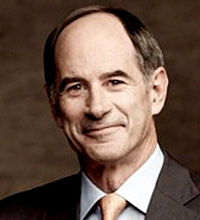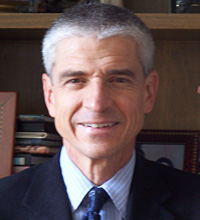According to the Financial Times, the award Thinkers50 is the Oscar of the management world. The award follows two simple principles:
- To promote new ideas whose power is enough to improve the world.
- Management is essential in every human activity.
Every two years the most renowned gurus of the world of management present themselves for the award. Thinkers50 has been awarded to Peter Drucker, Michael Porter, Tom Peters and Jack Welch.
Roger Martin, dean at the Rotman School of Management, University of Toronto from 1998-2013, is currently the director of the Martin Prosperity Institute. He was the winner of the 2013 Thinkers50 Best Book, Playing to Win: How Strategy Really Works, written with A.G. Lafley, ex-CEO of Procter & Gamble. An expert in integrative thinking and business design, Mr. Martin was kind enough to share his thoughts on strategy as it relates to family enterprises with the readers of The Practitioner.
Ricardo Mejia: We at FFI dig deep into family conflict and learn how, as practitioners, we can help family businesses be more successful. However, we rarely discuss how the lack of strategy can be the major cause for business failure. When executives express their aspirations, very often they describe them in terms of shareholder value and not in terms of customer or other stakeholder satisfaction. Which one is more important and why?
Roger Martin: Jack Welch says that maximization of value is the dumbest theory he has ever heard. Aristotle used to say that when someone had as his main objective to be happy, he rarely succeeded; but when someone´s purpose was to live a good life and help society, most probably that person would live a happy life.
The same applies in the business world. If the purpose of a corporation is to serve its customers properly and to make them deliriously happy, most probably the shareholders will receive a fair return. A good example is Johnson & Johnson´s credo. In 1943 Robert Wood Johnson stated:
“We believe our first responsibility is to the doctors, nurses and patients, to mothers and fathers and all others who use our products and services. In meeting their needs everything we do must be of high quality.” At the end, it says: “Our final responsibility is to our stockholders.” Today Johnson & Johnson’s shareholders rest peacefully because they know that so far as they take proper care of patients, doctors and nurses they will get a fair return.
Mejia: When you work on a strategy, do you put more emphasis on the analytical work or is it mainly a creative activity?
Martin: Aristotle was no doubt the first scientist in the world. He was the first to develop the theory of cause and effect. If we look back, what Descartes, Beacon and Newton did was to formalize Aristotle’s scientific methodology. In his book “Analytica Posteriora” he stressed the importance of analysis of data and of rational thinking. But in his book “Rhetoric,” not so well known, he wrote that only with imagination and creativity could the human being improve his life and surroundings. It is not a coincidence that Steve Jobs, who used to say “We’re here to put a dent in the universe. Otherwise why else even be here?” succeeded in that purpose because he mixed analysis of data with his powerful imagination.”
Mejia: When we as practitioners help our clients to develop their vision, as a preparatory work for a family constitution, often we have to intervene and guide them through challenging and achievable aspirations. That vision, in a way, will show the path the family business should follow. It is an essential material for the board and management, who are in charge of developing the strategy of the business.
As Ernesto Poza points out in his book Family Business: “For a board, being a compass, providing direction, and conducting satisfactory reviews of corporate behavior, business strategy, and managerial performance are next to impossible without the owning family having defined the goal.”
My conclusion: If we want to guide the family in the development of its vision or help the business become successful, or both, we need to think where they want to play, how they want to win, what capabilities they should develop and how things will be measured. Through those discussions, conflicts and differences lose weight. Therefore, strategy is a discipline that we should practice in our daily work.
Watch the full interview with Roger Martin to dive into this fascinating topic: www.sdj.com.co/entrevista-roger-martin/
About the contributors
 Roger Martin is the director of the Martin Prosperity Institute at the Rotman School of Management, University of Toronto, and the Premier’s Chair in Productivity & Competitiveness. Previously, he spent 13 years as a director of Monitor Company, a global strategy consulting firm based in Cambridge, MA, where he served as co-head of the firm for two years.
Roger Martin is the director of the Martin Prosperity Institute at the Rotman School of Management, University of Toronto, and the Premier’s Chair in Productivity & Competitiveness. Previously, he spent 13 years as a director of Monitor Company, a global strategy consulting firm based in Cambridge, MA, where he served as co-head of the firm for two years.
 Ricardo Mejia, CFBA, CFWA, is a former FFI board member. His firm, SALADEJUNTAS, is based in Colombia. Read his previous Practitioner article, A Case Study: Blood in the butchery! and his blog, To Lie Down on the Couch: Thoughts on psychology, leadership and business schools. Ricardo can be reached at ricardom@sdj.com.co.
Ricardo Mejia, CFBA, CFWA, is a former FFI board member. His firm, SALADEJUNTAS, is based in Colombia. Read his previous Practitioner article, A Case Study: Blood in the butchery! and his blog, To Lie Down on the Couch: Thoughts on psychology, leadership and business schools. Ricardo can be reached at ricardom@sdj.com.co.





